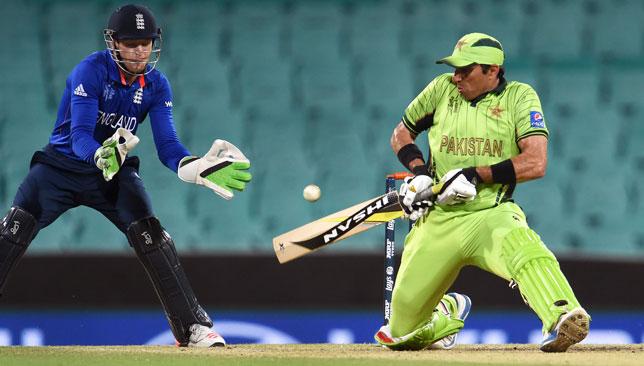
Just a month after the conclusion of another edition of world cricket’s tamasha event – the IPL – other countries are still playing catch up when it comes to replicating the financial success of the tournament in their own domestic calendars. The IPL, once an afterthought for the BCCI, is now the pre-eminent annual competition in cricket. The mass amounts of rupees, dollars and dirhams – whichever you prefer – involved, players have even taken to preferring the IPL to representing their national teams. And the result of this is largely a debate left inconspicuous by its silence.
– EXCLUSIVE: Familiarity the key for Sarfraz and Shafiq
– UAE: Tauqir not worried about Ramadan effects on WT20Q
– #360debate: Are Australia too old to win the Ashes this year?
– Cricket Xtra: Time for Bangladesh to shine on the Test stage
Instead, the IPL – the personification of T20 cricket and beacon for the glitz and glamour now associated with it – has become an empty battleground where traditionalists fight over a lost cause. It’s become the avatar for those who wish to complain about everything that’s wrong with the game, particularly the control that BCCI exerts over it. For some it isn’t even real cricket, it is just an excuse for the BCCI to fill their coffers while destroying the game they are supposed to protect. A seemingly untouchable force of nature, the backlash it receives is anything but judicious. The emotions exerted from either side ignore how it has affected cricket over the past eight years. In some ways it echoes the belief that sport is no different from religion; where the understanding and identity of the core principles is debated far more than the evolution that is taking place.
But the 2015 World Cup in the Antipodes might just change all of that.
Until now, the IPL, like nearly all of T20 cricket, has been seen (mainly by those that opposed to it) as something alien to their own game. To those who consider cricket as their own property, T20 was as relevant to them as the Game of Thrones fighting pits in Meereen are to those in Westeros. But now, the chickens have come home to roost.
At this year’s World Cup, much like most matches in recent years, Pakistan and England seemed out of touch with where the rest of the world was in one-day cricket. Among the top nine nations, both were two of the three countries with the lowest strike rates from January 2012 till the start of this month – West Indies sandwiching the two at the bottom of that table. It was no surprise that they were two of the worst Test-playing sides during that period – alongside Bangladesh and the West Indies.
.@ICC T20 Ratings 1 SriLanka 2 India 3 Australia 4 West Indies 5 Pakistan 6 New Zealand 7 South Africa 8 England 9 Bangladesh 10 Afghanistan
— Mumbai Indians (@mipaltan) June 23, 2015
When Peter Moores used “data” to defend his team in the World Cup, as England refused to realize that 300 really wasn’t that steep a total considering modern rules, bats and pitches, it was obvious that something had to give. England and Pakistan are two major nations that barely contribute to the IPL – for a variety of reasons – and have been left behind by other nations firmly at the fore of the revolution. But it seems that England are now embracing the grown up version of its own creation.
Over the past couple of years the ECB has made attempts, much like Cricket Australia, to popularise their domestic T20 competition. And with the Natwest T20 Blast expected to welcome attendances of over a million people this season, it’s fair to say their attempts have been more successful this year. By attempting to improve the state of English cricket in the shorter formats, and the money such a tournament brings the sport, the ECB is killing two birds with one stone.
The move seems to be paying off already, and with the shackles off England secured a thrilling 3-2 series win over beaten World Cup finalists New Zealand in matches filled with high scoring, bold cricket.
Prior to that series, England had scored over 350 in a 50 over game only once in their history. They have now done it four times and were left disappointed at making 302 in the 3rd ODI when 350 was within their sights. Rarely is a change made that instant.
After pitches that produce 350 runs, I won’t be surprised if England actually start franchise based T20. They already have King Lalit there.
— cricBC (@cricBC) June 17, 2015
Even slower to take up the game’s reinvention has been Pakistan. For a long time they have struggled with a domestic system that fails to consistently produces players ready for the international game and have been without a relevant T20 competition.
However, there is light at the end of the tunnel. The PCB have this month announced the launch of a revamped domestic T20 league as of 2016, with the first year being staged in the UAE. It is the decision on the venue which could prove to be the game changer for Pakistan. A sportsman’s dream holiday destination, the UAE should entice some of the world’s top players to take part. Not only that, the experience can be used to develop their own players, much like the IPL has helped the progression of India’s young stars.
Both countries are attempting to implement much needed change but the concern will be that it is all a little too late. English and Pakistani fans of cricket will be hoping otherwise.